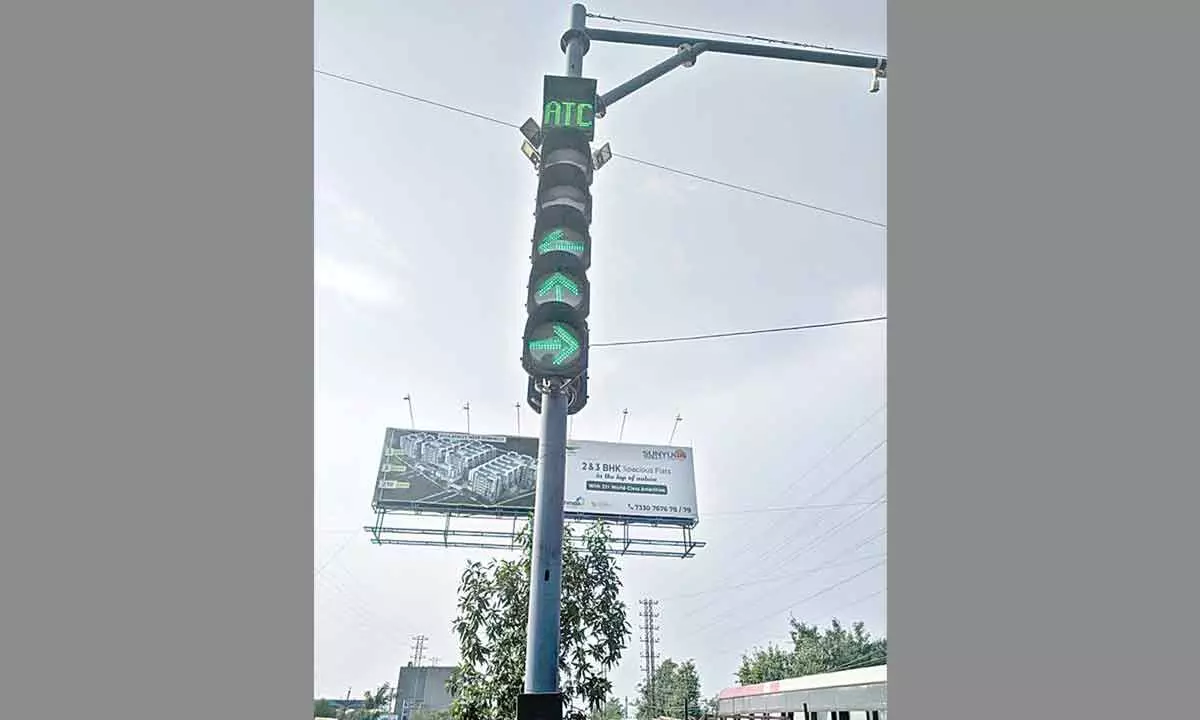Hyderabad: New smart traffic signals to come up in city

The existing traffic control system will be replaced with a new smart traffic system by setting up the Adaptive Traffic Signal Control (ATSC) system and Pelican Signal System (PSS)
Hyderabad: To prevent accidents and reduce the stop time at the signals in the city, the Greater Hyderabad Municipal Corporation (GHMC) will be replacing the existing traffic control system with a new smart traffic system by setting up the Adaptive Traffic Signal Control (ATSC) system and Pelican Signal System (PSS). With the objective of optimising a combination of delay and number of stops, this new traffic control system will automatically and continuously adjust the green time based on the changing arrival patterns of vehicles at an intersection.
The city will soon have enhanced travel time reliability, less halt time at junctions, reduction in city-wide congestion, fewer stops, fewer emissions and improved road safety with the new ATSC and PSS.
Under this new project, the GHMC will install a total of 122 ATSC signals and 94 pelican signals. The operation and maintenance of the 213 signals have also been taken up under Hyderabad Traffic Integrated Management System (HTRIMS).
The Traffic Police department has already identified locations and has recommended the GHMC authorities to set up traffic signals at identified spots.
According to GHMC officials, the new system will be using camera-based detectors. The system will monitor constant movement of the approaching vehicles and will create new timing sequences to match them.
Explaining the new ATSC and PSS the official told that a central system provides monitoring of each junction data and optimises the system at a network level to ensure synchronisation of signals to reduce system delays. The system will improve traffic flows along major corridors in the city by reducing delays through a combination of local and network-level optimisation.
The major part of the project scope envisaging 57 corridors consisting of 57 ATSC signals and 157 existing HTRIMS signals is completed and is expected to deliver benefits as part of the new system.
The officials also said that 94 Pelican signals equipped with a Push button facility to provide safe pedestrian crossing through the on-demand Pedestrian stage will be installed. These signals will be located at strategic locations such as hospitals, colleges/schools and commercial public places where high pedestrian footfalls are present.
The state-of-the-art adaptive control algorithm is developed by C-DAC (Centre for Development of Advanced Computing) for Indian cities and their heterogenous, non-lane-based traffic. The algorithm, Composite Signal Control Strategy (CoSiCoSt), adjusts the cycle time, green splits and offsets to support coordination with nearby intersections to manage area-wide traffic in real-time. Central connectivity is provided to all project signals, which will support both timing changes and maintenance alerts, the officials added.


















